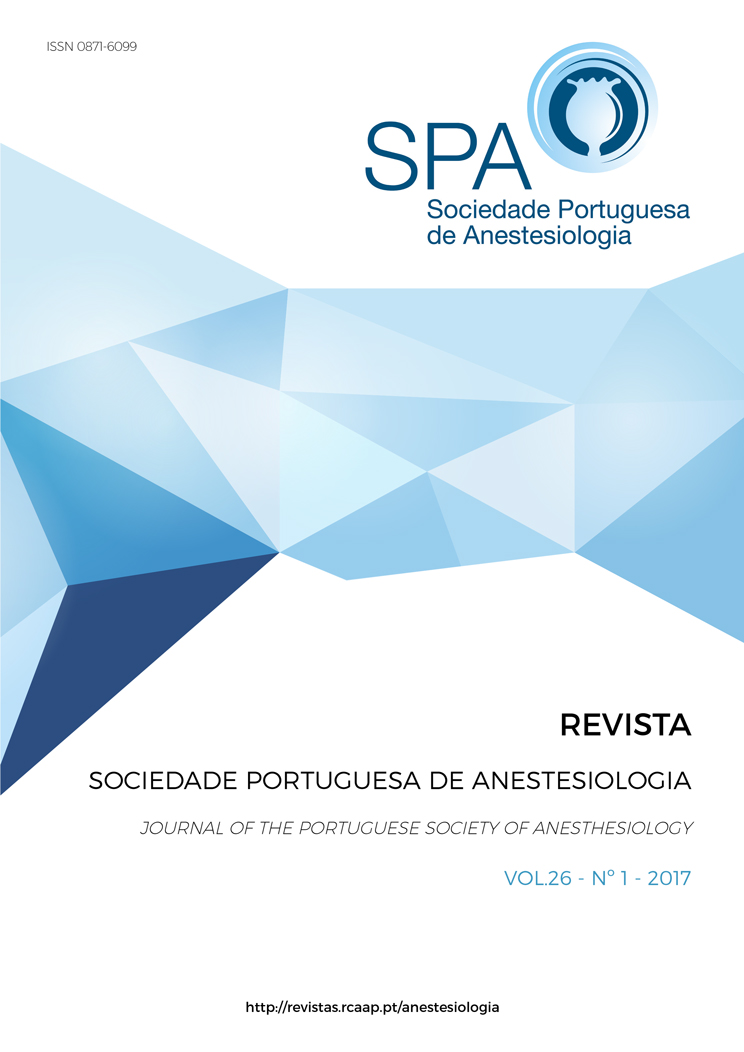Maintenance of perioperative normothermia in Portugal ̶ assessment questionnaire
DOI:
https://doi.org/10.25751/rspa.10127Keywords:
Perioperative hypothermia, body temperature, thermoregulation, monitoring, prevention, warming, safety, surveyAbstract
Introduction: Temperature monitoring, maintenance of normothermia, prevention and treatment of inadvertent perioperative hypothermia are considered standard of care. The aim of this study was to evaluate the level of monitoring and maintenance of temperature in the perioperative period at portuguese hospitals; and to understand why international guidelines have not been fulfilled.Material and methods: A survey among anesthesiologists assessed estimated importance and clinical practice in terms of temperature monitoring and prevention of inadvertent perioperative hypothermia.Results: A total of 108 anesthesiologists answered the questionnaire. Most anesthesiologists considered temperature monitoring of great importance. However, most of them admitted monitoring only intraoperatively. Active warming was considered an indication if intravenous fluids and blood products were given at infusion rates above 1000ml/h and expected duration of anesthesia longer than 60 minutes. Besides, operating rooms show an ambient temperature below 21ºC, in most cases.Discussion and Conclusion: Temperature monitoring is an important issue for assessing the quality of anesthesia. The best monitoring sites depend on patients and kind of surgery. All effort to prevent hypothermia should be done, including the more frequently use of body temperature monitoring and methods to warm patients. We emphasize the need for more investment in heating and temperature monitoring devices, in order to improve our performance. We also need a national guideline based on our reality.Downloads
Download data is not yet available.
Downloads
Published
2017-03-09
How to Cite
Ribeiro, A. F., Pereira, E., Matias, F., Azenha, M., Macedo, A. L., & Órfão, M. do R. (2017). Maintenance of perioperative normothermia in Portugal ̶ assessment questionnaire. Journal of the Portuguese Society of Anesthesiology, 26(1), 10–17. https://doi.org/10.25751/rspa.10127
Issue
Section
Original Article
License
Articles are freely available to be read, downloaded and shared from the time of publication.
The RSPA reserves the right to commercialize the article as an integral part of the journal (in the preparation of reprints, for example). The author should accompany the submission letter with a declaration of copyright transfer for commercial purposes.
Articles are published under the terms of the Creative Commons Attribution Non-Commercial License (CC BY-NC).
After publication in RSPA, authors are allowed to make their articles available in repositories of their home institutions, as long as they always mention where they were published.


